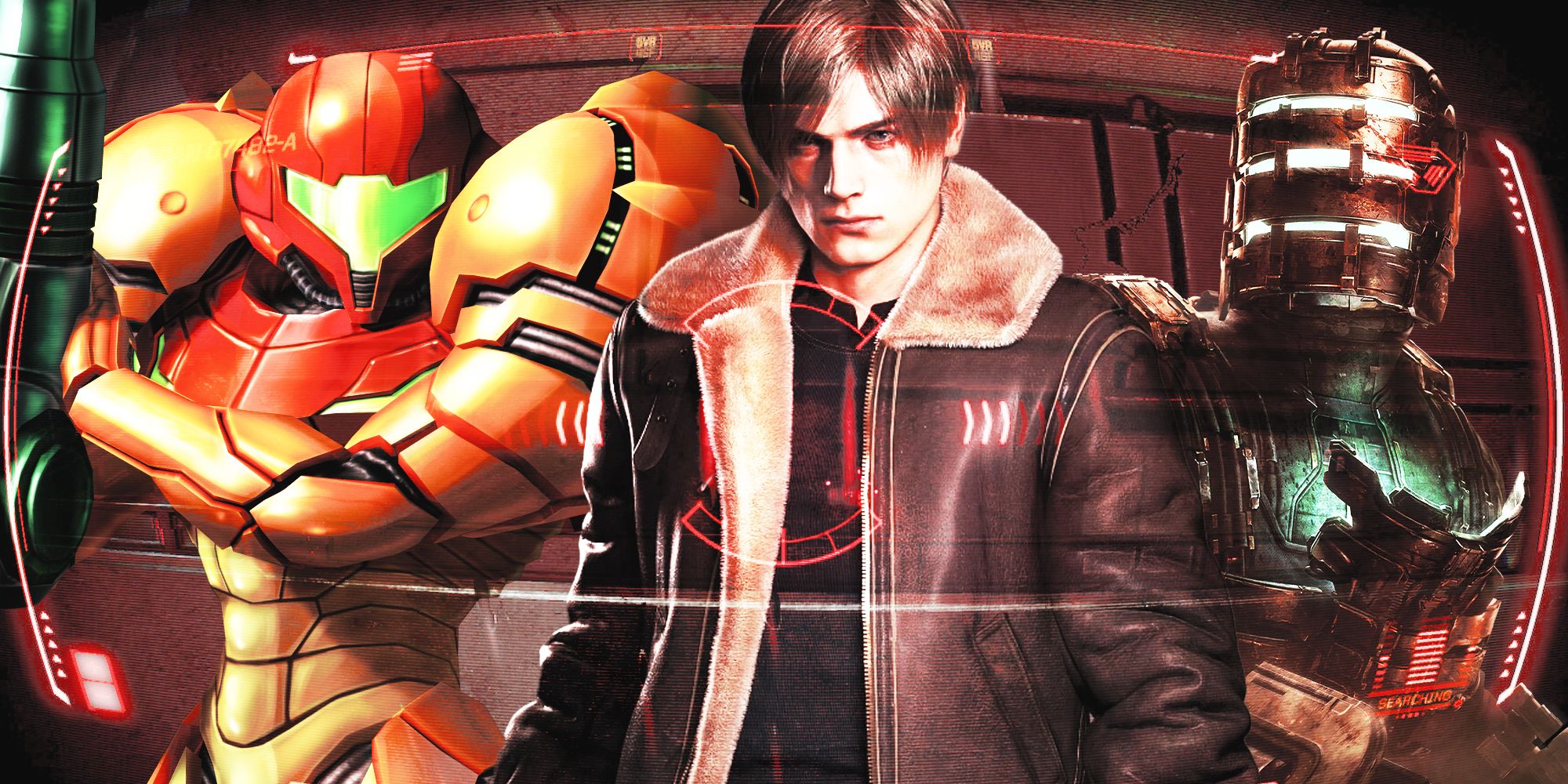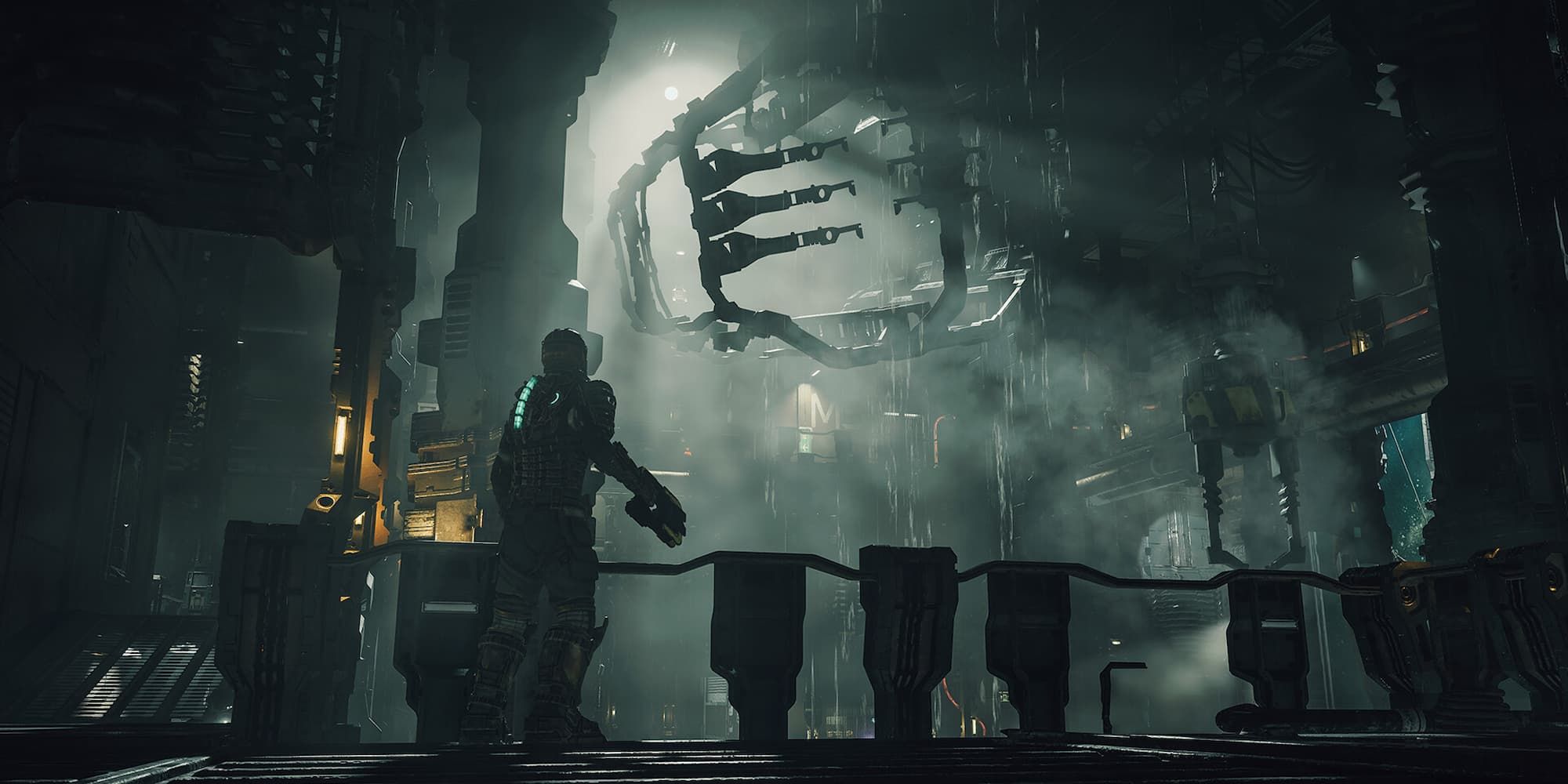2023 has seen a lot of remakes and remasters. EA released Dead Space, Capcom put out Resident Evil 4, Nintendo remastered Metroid Prime, Bloober Team doled out some Layers of Fear, and Nightdive Studios gave us a shock to the system with System Shock. What most of those games have in common, aside from being horror games from an earlier era, is an intense focus on tight, rewarding level design. With the exception of Layers of Fear, which has a more dreamlike logic guiding its exploration, these games place players in sprawling environments and ask them to explore them until they make sense.
These remakes are notable for how obvious it is that they come from a different era. I wrote recently about the ways many modern triple-A games like Final Fantasy 16 and God of War Ragnarok share an almost identical approach to level design. Both funnel players along extremely linear levels with little branching, stopping at intervals for combat encounters at escalating difficulty levels before ending the level with a flashy boss fight. You can see how this approach to level design compares to earlier games by comparing Dead Space’s remake to its spiritual successor, The Callisto Protocol. The Dead Space remake allows you to get lost as you explore, attempting to make your way through the intricate guts of the Ishimura. The Callisto Protocol, though, is always scooting you along through extremely straightforward corridors. It would take more effort to get lost than to reach your destination.
This is where level design for linear games is at, by and large, in 2023. The last year and change has been much stronger for open worlds, with the undisputed masterpieces of 2022 and 2023, Elden Ring and The Legend of Zelda: Tears of the Kingdom, both being ridiculously open-ended. God of War Ragnarok and Final Fantasy 16 are two examples of a worsening status quo, pointing to a future where levels look amazing but don’t allow players to make any meaningful choices. We just follow the arrows on the wall.
But, the choice shouldn't be between thoughtful interaction with open-worlds and linear games that hurry you along like water slides. Resident Evil 4 Remake, Dead Space, System Shock, and Metroid Prime Remastered aren't open-world games, and that's precisely why they point to a better way for modern design.
All of them began with source material that was fairly small by today's standards, which allowed their teams to drastically improve the graphical presentation while keeping the game at an achievable size. Metroid Prime Remastered didn't add new content to its map, instead focusing on quality-of-life features like a hint system and new control schemes. But, Resident Evil 4 Remake and Dead Space took a more thorough approach, overhauling the graphics, but also expanding or revising levels from the original games. These games are bigger than they used to be, but modest by today's standards for triple-A size.
As game budgets and development cycles and world size continue to swell, these remakes offer a helpful corrective. These are still classics, and developers should take notice of the fact that none of them are massive. Learning to aim for something humble again seems like the first step toward getting linear games back on track.


